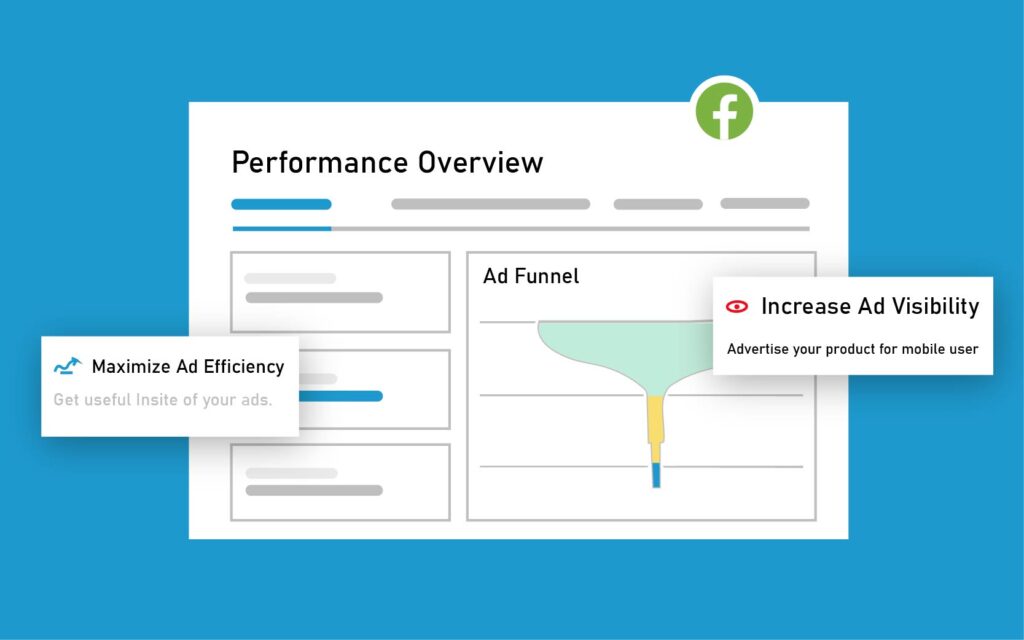
LinkedIn Client Hunting Course in Mohakhali
LinkedIn is more than just a platform for networking; it’s a powerful tool for finding

If you want my team to manage your good marketing for you, click here
Facebook marketing has become an necessary skill for businesses looking to thrive in today’s digital landscape. In Bashundhara, he, she, and they can take advantage of specialized courses that provide in-depth knowledge on effective strategies for reaching and engaging audiences on this powerful platform. These courses cover a range of topics, including ad creation, audience targeting, and analytics, equipping participants with the tools necessary to elevate their marketing efforts. Whether a beginner or an experienced marketer, this course offers valuable insights that can lead to significant growth and success.
Your understanding of Facebook marketing strategies can significantly boost online presence. Here are some common approaches they should consider:
Recognizing the right strategy can lead to enhanced visibility and engagement.
| Strategy Type | Description |
| Content Creation | Developing engaging posts and visuals |
| Engagement Tactics | Responding to comments and messages promptly |
| Influencer Collaboration | Partnering with influencers for wider reach |
| Facebook Groups | Creating niche communities for discussions |
| Event Promotion | Using Facebook to promote upcoming events |
Organic marketing focuses on building a brand’s presence through unpaid efforts. Strategies may include regularly posting engaging content, utilizing Facebook Stories, and participating in discussions within groups. They can foster relationships and enhance brand loyalty without direct financial outlay.
Facebook advertising offers a powerful avenue for targeted marketing. This method allows businesses to reach specific demographics and interests, resulting in higher engagement and conversion rates. Paid campaigns can include photo ads, video ads, or carousel ads, tailored to meet various marketing goals.
With precise targeting options and analytics, they can optimize their advertising campaigns effectively. Additionally, using A/B testing helps them determine which ads perform best, allowing for continuous improvement in their marketing strategy. This adaptability ensures they make the most out of their advertising budget while maximizing their reach.
Some key factors contribute to effective Facebook marketing. He or she should focus on the following elements to achieve optimal results:
Assume that integrating these factors will significantly enhance their marketing efforts on Facebook.
Successful Facebook marketing begins with a thorough understanding of the target audience. He or she must identify demographics, interests, and behaviors to tailor content and advertisements accordingly. This analysis allows for more precise targeting, ensuring that they reach individuals who are likely to engage with their brand.
Some strategies for effective content creation on Facebook emphasize the importance of variety and presentation. They should focus on mixing different types of content, such as videos, images, and polls, to keep their audience engaged. By maintaining a consistent posting schedule, she or he can build anticipation and familiarity with their brand.
It is necessary to analyze the performance of different types of content regularly. He or she should observe which formats garner the most interaction and adjust their approach accordingly. This iterative process, combining creativity with data-driven insights, can lead to more engaging and impactful content strategies tailored to their audience’s preferences.
The journey to establishing a successful Facebook campaign begins with a clear strategy. This guide provides a simplified breakdown of vital steps needed for effective campaign creation:
| Step | Description |
|---|---|
| 1. Identify Goals | Define what they aim to achieve, such as brand awareness or lead generation. |
| 2. Understand Target Audience | Research demographics, interests, and behaviors of potential customers. |
| 3. Create Ad Content | Develop engaging visuals and compelling messages that resonate. |
| 4. Set Budget | Determine a realistic budget based on their objectives and audience size. |
| 5. Launch Campaign | Implement the campaign and monitor its progress closely. |
| 6. Analyze Performance | Utilize analytics tools to measure success and optimize future efforts. |
Business entities must create a Facebook Business Page to establish their online presence. This page serves as the hub for engaging with customers and promoting products or services. They should include vital information such as business hours, contact details, and a compelling description that encapsulates their brand identity.
Step by step, launching and optimizing ads requires a careful approach to ensure maximum efficiency and effectiveness. They must select the appropriate ad format, such as images, videos, or slideshows, to capture attention while keeping the messaging consistent with their brand. Testing various advertisements simultaneously, also known as A/B testing, allows them to refine their ads based on performance data.
Guide them through the process of continually monitoring analytics at regular intervals. By analyzing metrics such as click-through rates, conversion rates, and engagement levels, they can make informed decisions about which ads to modify or replicate. It’s fundamental that they stay adaptable and willing to tweak their strategies based on audience interaction and feedback, maximizing the return on investment for their campaigns.
For those seeking to enhance their Facebook marketing efforts, it’s vital to adopt strategies that yield positive outcomes. Here are some vital tips to consider:
Thou will find that consistency in these practices leads to greater success.
To foster interactions and build community, effective engagement best practices must be implemented. Posting regularly, responding to comments, and using interactive content such as polls and live videos can significantly enhance user engagement.
Facebook analytics provides detailed insights that are critical for evaluating the effectiveness of marketing strategies. She can use metrics such as reach, engagement, and conversion rates to understand audience behavior and refine their tactics accordingly.
Success in Facebook marketing hinges on the ability to analyze performance accurately. By leveraging tools like Facebook Insights and A/B testing, they can identify what works and what doesn’t, allowing for data-driven decisions. This iterative process ensures continuous improvement and maximizes return on investment in marketing efforts.

Despite its popularity, Facebook marketing has both advantages and disadvantages that marketers must consider. This helps he or she to evaluate the effectiveness and strategy needed for their campaigns. The following table breaks down the vital pros and cons of utilizing Facebook for marketing:
| Pros | Cons |
|---|---|
| Large user base | Competition for attention |
| Targeted advertising options | Algorithm changes impact reach |
| Measurable results | Ad costs can escalate |
| Engagement opportunities | Negative feedback visibility |
| Versatile content sharing | Time-consuming management |
Cons of Facebook marketing include the fierce competition among businesses vying for customer attention and the fluctuating nature of the platform’s algorithms, which can hinder organic reach. Furthermore, the costs related to advertising can increase, making budgets a point of concern for marketers.
The challenges associated with Facebook marketing require careful attention. The visibility of negative feedback can damage a brand’s reputation and impact customer trust. Additionally, handling the time-consuming aspects of content creation and community management can pose difficulties for marketers trying to maintain engagement and brand presence.
Pros of Facebook marketing include a vast user base, which reaches a diverse audience, allowing for targeted advertising options. Marketers benefit from measurable results, making it easier to assess campaign performance. Opportunities for engagement are abundant, allowing brands to foster relationships with customers using versatile content sharing capabilities.
As a reminder, the Facebook Marketing Course in Bashundhara equips individuals with the important skills and knowledge required to thrive in today’s digital marketing landscape. Participants learn to navigate the intricacies of Facebook’s advertising tools, target specific audiences effectively, and measure campaign success. They gain valuable insights into content creation and engagement strategies, ensuring they can enhance their brand’s online presence. Ultimately, this course empowers attendees to leverage Facebook as a powerful marketing platform, positioning themselves effectively within the competitive market.
Be with us Digital Wit Academy.
It is really a win-win situation 😲 for you to join the “Digital Wit Academy” Facebook group and gain the most updated information about different digital marketing strategies.

Kamrul Hassan is the founder and CEO of Digital Wit Academy. As you know, Digital Wit Academy is a fast-growing Bangla e-learning platform that provides quality knowledge and support to students. Kamrul Hassan is a government-certified Professional Digital Marketing Expert and a trainer/mentor in the Youth and sports ministry projects of the BD government. His Team Digital Wit Academy consists of well-educated and highly motivated core team members who are very friendly. They believe in quality support to make the students’ careers more successful. Support is the best part of the Digital Wit Academy courses.

Stop wasting money and unlock the hidden potential of your advertising skills with Digital Wit Academy.

LinkedIn is more than just a platform for networking; it’s a powerful tool for finding

Most professionals are aware of LinkedIn’s potential as a powerful tool for networking and client

Course participants will discover the art of leveraging LinkedIn client hunting to attract effectively. In

With the rise of digital networking, mastering LinkedIn for client acquisition has never been more

There’s an exciting opportunity for professionals seeking to enhance their networking skills through my LinkedIn
Hey, I’m Kamrul Hassan, the mastermind of Digital Wit. I’m confident to grow your brand. My only question is, will you grab the opportunity?